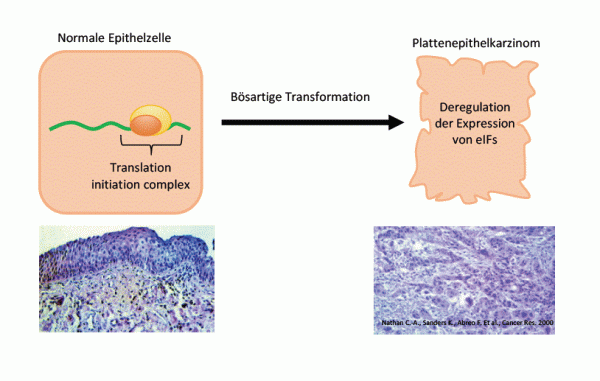Subproject 11: The role of eukaryotic initiation factors (eIFs) eIF2, eIF3a, eIF4b, eIF4e, eIF6 in the pathogenesis of laryngeal squamous cell carcinoma
Clinic for Throat, Nose and Ear medicine: Arens C
Institute of Pathology: Haybäck H
Many scientific studies show a causal relationship between chronic inflammatory processes and the formation of precancerous lesions, which later develop into invasive carcinomas. The pathogenesis of squamous cell carcinomas of the larynx is progressive and follows this pattern. On the other hand, eukaryotic initiation factors (eIFs) have a decisive function for translation and are dysregulated in various types of cancer, which are initiated through inflammatory processes including cervical cancer and esophageal cancer. However, our understanding of the expression of eIFs in squamous cell carcinmoas of the larynx is lacking. The goal of this study is to investigate whether eIF2, eIF3a, eIF4b, eIF4e and eIF6 play a role in this pathogenesis.

Figure: Representation of the project:
Normal epithelial cells of the larynx: eIFs control the process of mRNA translation (left); the expression of eIF2, eIF3a, eIF4b, eIF4e and eIF6 during squamous cell carcinoma of the larynx is to be investigated (right).






